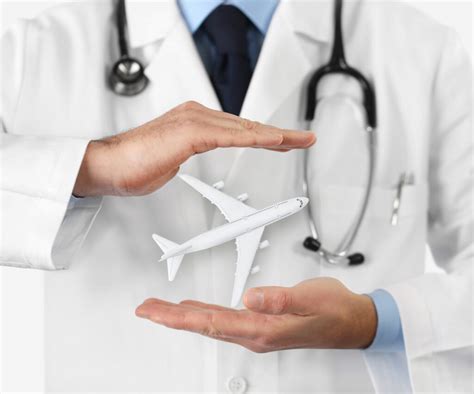Travel Clinics Guide

Introduction to Travel Clinics
When planning a trip abroad, one of the most important considerations is health and safety. Travel clinics play a crucial role in ensuring that travelers are well-prepared for their journey by providing essential vaccinations, medications, and advice on how to stay healthy while traveling. In this guide, we will explore the world of travel clinics, their services, and how they can help travelers stay safe and healthy while exploring the world.
What are Travel Clinics?
Travel clinics are specialized medical facilities that cater to the health needs of international travelers. These clinics are staffed by medical professionals who have expertise in travel medicine and are equipped to provide a range of services, including vaccinations, prescriptions, and travel advice. Travel clinics can be found in hospitals, private practices, and even online, making it easy for travelers to access their services from anywhere in the world.
Services Offered by Travel Clinics
Travel clinics offer a wide range of services to help travelers prepare for their trip. Some of the most common services include: * Vaccinations: Travel clinics provide vaccinations against diseases such as hepatitis A, hepatitis B, typhoid, and yellow fever, among others. * Prescriptions: Travel clinics can prescribe medications to prevent illnesses such as malaria, altitude sickness, and traveler’s diarrhea. * Travel Advice: Travel clinics provide advice on how to stay healthy while traveling, including tips on food and water safety, insect-borne illnesses, and other health risks. * Medical Clearance: Travel clinics can provide medical clearance for travelers with pre-existing medical conditions, ensuring that they are fit to travel.
Benefits of Using a Travel Clinic
Using a travel clinic can provide numerous benefits to travelers, including: * Personalized Advice: Travel clinics provide personalized advice and recommendations based on the traveler’s destination, itinerary, and medical history. * Up-to-Date Information: Travel clinics have access to the latest information on health risks and disease outbreaks, ensuring that travelers are well-informed and prepared. * Convenience: Travel clinics can provide a one-stop-shop for all travel health needs, saving travelers time and hassle. * Peace of Mind: By using a travel clinic, travelers can have peace of mind knowing that they have taken the necessary steps to protect their health while traveling.
How to Choose a Travel Clinic
With so many travel clinics available, it can be difficult to choose the right one. Here are some factors to consider: * Qualifications: Look for clinics that are staffed by medical professionals with expertise in travel medicine. * Experience: Choose clinics that have experience in providing travel health services to travelers. * Reputation: Research the clinic’s reputation online and read reviews from previous clients. * Services: Consider the range of services offered by the clinic and whether they meet your needs.
Pre-Trip Preparation
Before traveling, it is essential to prepare properly to minimize the risk of illness and injury. Here are some steps to take: * Research: Research your destination and the health risks associated with it. * Consult a Travel Clinic: Consult a travel clinic to determine the necessary vaccinations and medications. * Make an Appointment: Make an appointment with a travel clinic at least 4-6 weeks before traveling. * Follow Advice: Follow the advice and recommendations provided by the travel clinic.
🚑 Note: It is essential to make an appointment with a travel clinic well in advance of your trip to ensure that you have enough time to receive the necessary vaccinations and medications.
Common Travel Vaccinations
Here are some common travel vaccinations: * Hepatitis A: Recommended for travelers to areas with high rates of hepatitis A, including Africa, Asia, and Latin America. * Hepatitis B: Recommended for travelers to areas with high rates of hepatitis B, including Africa, Asia, and Latin America. * Typhoid: Recommended for travelers to areas with high rates of typhoid, including Africa, Asia, and Latin America. * Yellow Fever: Required for travelers to areas with high rates of yellow fever, including Africa and South America.
| Vaccination | Recommended for | Required for |
|---|---|---|
| Hepatitis A | Africa, Asia, Latin America | None |
| Hepatitis B | Africa, Asia, Latin America | None |
| Typhoid | Africa, Asia, Latin America | None |
| Yellow Fever | Africa, South America | Africa, South America |
Stay Healthy While Traveling
Here are some tips to stay healthy while traveling: * Food and Water Safety: Avoid eating undercooked food and drinking untreated water. * Insect-Borne Illnesses: Use insect repellent and wear protective clothing to prevent insect-borne illnesses. * Sun Protection: Use sunscreen and wear protective clothing to prevent sunburn and skin damage. * Stay Hydrated: Drink plenty of water to stay hydrated and avoid dehydration.
In summary, travel clinics play a crucial role in ensuring that travelers are well-prepared for their journey by providing essential vaccinations, medications, and advice on how to stay healthy while traveling. By choosing a reputable travel clinic and following their advice, travelers can minimize the risk of illness and injury and have a safe and healthy trip.
What is the purpose of a travel clinic?
+
The purpose of a travel clinic is to provide travelers with the necessary vaccinations, medications, and advice to stay healthy while traveling.
What services do travel clinics offer?
+
Travel clinics offer a range of services, including vaccinations, prescriptions, travel advice, and medical clearance.
How do I choose a travel clinic?
+
When choosing a travel clinic, consider factors such as qualifications, experience, reputation, and services offered.